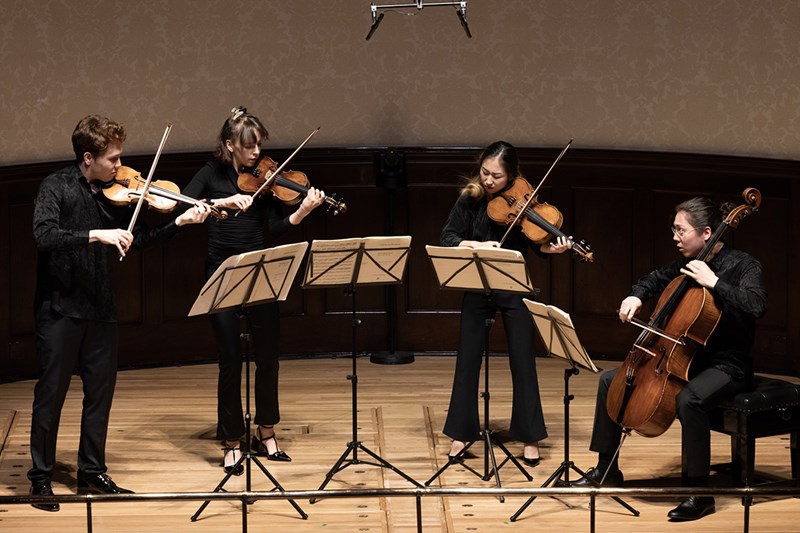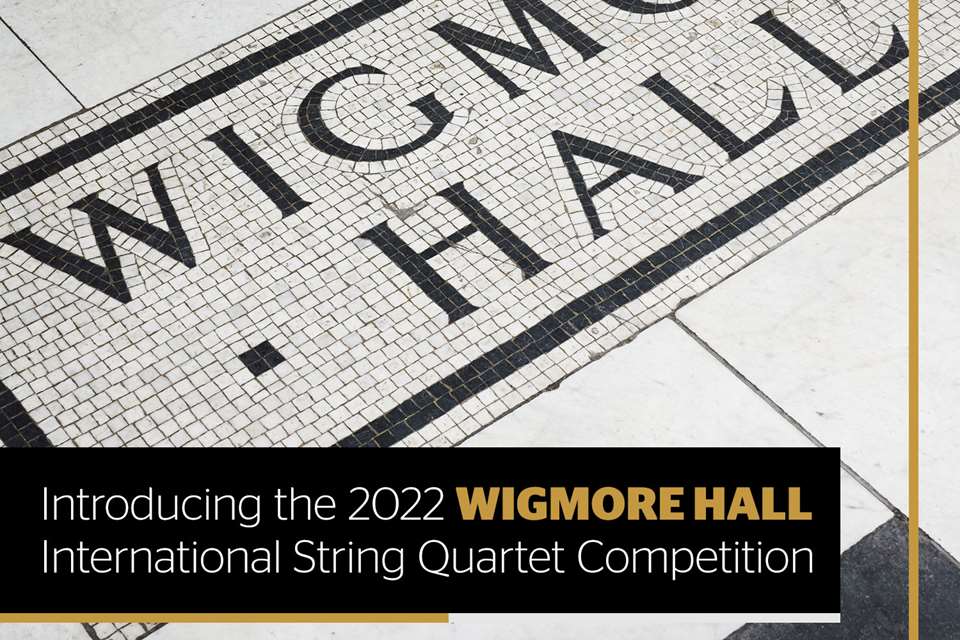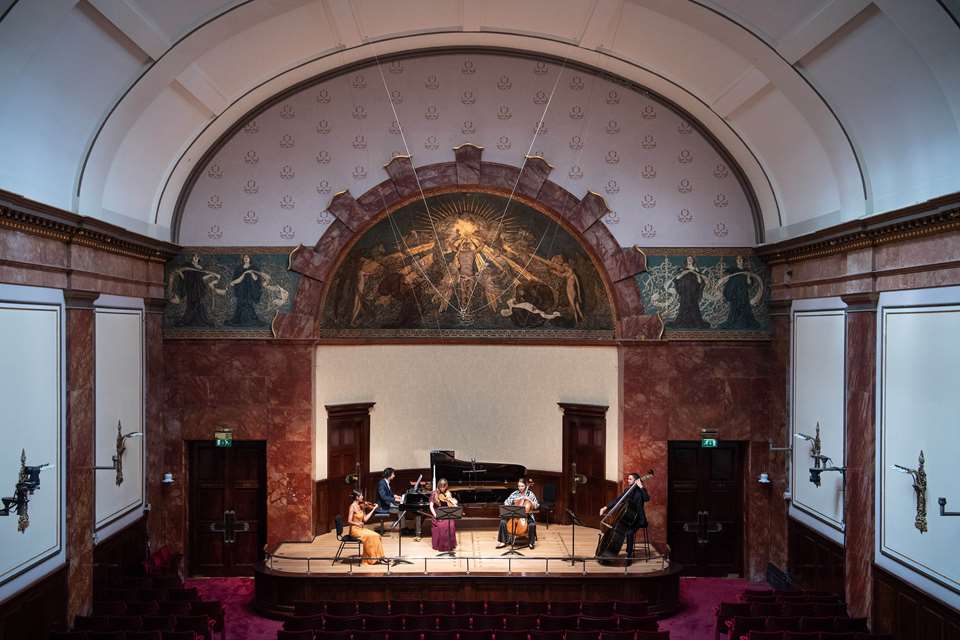The Leonkoro Quartet triumph at the Wigmore Hall International String Quartet Competition
Sponsored
Monday, April 11, 2022
A superb final saw three excellent ensembles compete for the prestigious prize. Richard Whitehouse was there to offer his assessment of these impressive young groups
A sure sign of a return to cultural normality is the Wigmore Hall International String Quartet Competition, rescheduled from last year and now reaching the 14th edition – having started life at Portsmouth in 1979 (when it was won by the Takács Quartet), relocating to London in 1988 then to the Wigmore in 2010. Since then, this triennial event has amassed a formidable roster of award winners – with ensembles such as the Hagen (1982), Wihan (1991), Casals (2000) and Arcadia (2012) quartets each having launched their international careers through its auspices. Even with the continuing effects of the Covid virus, this year saw ten of the finest younger ensembles (with an average age-range of 24 to 33) take the stage for five days of preliminary and semi-final rounds, before arriving at those three ensembles heard at this evening’s final.
The Leonkoro Quartet performing their prize-winning interpretation of Beethoven's Op 59, No 3 from the ‘Razumovsky’ set (photo: Ben Ealovega)
The final round stipulated each finalist perform a quartet by Beethoven – which, in the first instance, saw the Leonkoro Quartet tackle the third (Op 59, No 3) of the ‘Razumovsky’ set. Based in Germany, this group is centred around its leader Jonathan Schwarz - his magnetic presence to the fore in an initial Allegro that, despite too taciturn an introduction, sustained a powerfully cumulative impetus with an especially imaginative lead-in to the reprise. Even finer was the Andante, more a slow intermezzo than slow movement per se - the unworldly harmonies abetted by trenchant pizzicato playing from cellist Lukas Schwarz. The Menuetto lacked a degree of charm, but its trio had appealing poise while the transition into the finale had the right expectancy. With its tensile contrapuntal interplay, this latter movement needs to be confronted head-on and the Leonkoro responded. There was a recurrent scoop prior to the first ensemble entry and an occasional lack of clarity in the inner parts, but the headlong tempo was sustained past the coda’s ‘false cadence’ to a thrilling take on the final crescendo.
Next came the Affinity Quartet with the C sharp minor (Op 131) from Beethoven’s series of ‘late quartets’. Based in Australia, this ensemble set itself a tough challenge to which, in the event, it did not quite meet - which is not to deny the collective cohesion of these players in their traversal of the opening fugue, their timbral allure mitigating any lack of inner intensity throughout this contemplative music. The brief Allegro brought tangible lightening of mood, with the transition into the central Andante vividly rendered, but those variations themselves needed greater subtlety in expressive contrast - without which, its ethereal eloquence seemed unvaried or even uniform. The ensuing Presto was more convincing, the Affinity teasing out this scherzo’s recalcitrant humour even if more could have been made of a startling recourse to pizzicato and sul ponticello textures. The transition yielded exquisite pathos, but the final Allegro seemed too inflexible rhythmically to convey the propulsive motion it accumulates; the music sounding weary rather than resigned in the approach to its defiant closing gesture.
After the interval, the Adelphi Quartet provided another and wholly different reading of the ‘Third Razumovsky’. Based in Austria and Germany, this group boasts an immaculate tonal balance as paid dividends in a bewitching but far from coy introduction then throughout an opening Allegro whose imaginative flights of fancy were harnessed to a consistent sense of purpose. The following movement was hardly less persuasive and, even if cellist Nepomuk Braun was less characterful than his counterpart in the Leonkoro, the music’s unforced ebb and flow of tension was tellingly in evidence. The Menuetto did not lack graciousness or its trio for wit, then the transition into the finale was spellbinding without detriment to formal continuity. The Adelphi’s all-round integration came into its own in this latter movement – comparable in pacing or impetus to that earlier account, but with even greater emphasis on textural clarity in the run-up to that final crescendo. If the players made it sound almost too effortless, there was no lack of emotional input as those heady closing bars were reached.
What was supposedly a short break before the six-member jury delivered its verdict extended to nearly half-an-hour, suggesting a measure of debate as to how the prizes might be awarded. Nevertheless, when they and chairman John Gilhooly took the stage to apportion the sundry prizes, it became evident (and remembering all earlier stages of the competition needed to be taken into account) the Leonkoro Quartet was on course to take the palm. With the Affinity awarded third prize and the Adelphi second prize, the Leonkoro’s triumph was well received by a near-capacity house as had remained in situ for the duration. Clearly this is an ensemble with an exceptional future, and a vindication of the consistently high standard that has made this competition an essential fixture for those quartets who aspire to the highest achievement.
The entire final is available to watch below.
Full details on all stages of the competition along with a detailed list of prizes can be found at Wigmore Hall's website.










